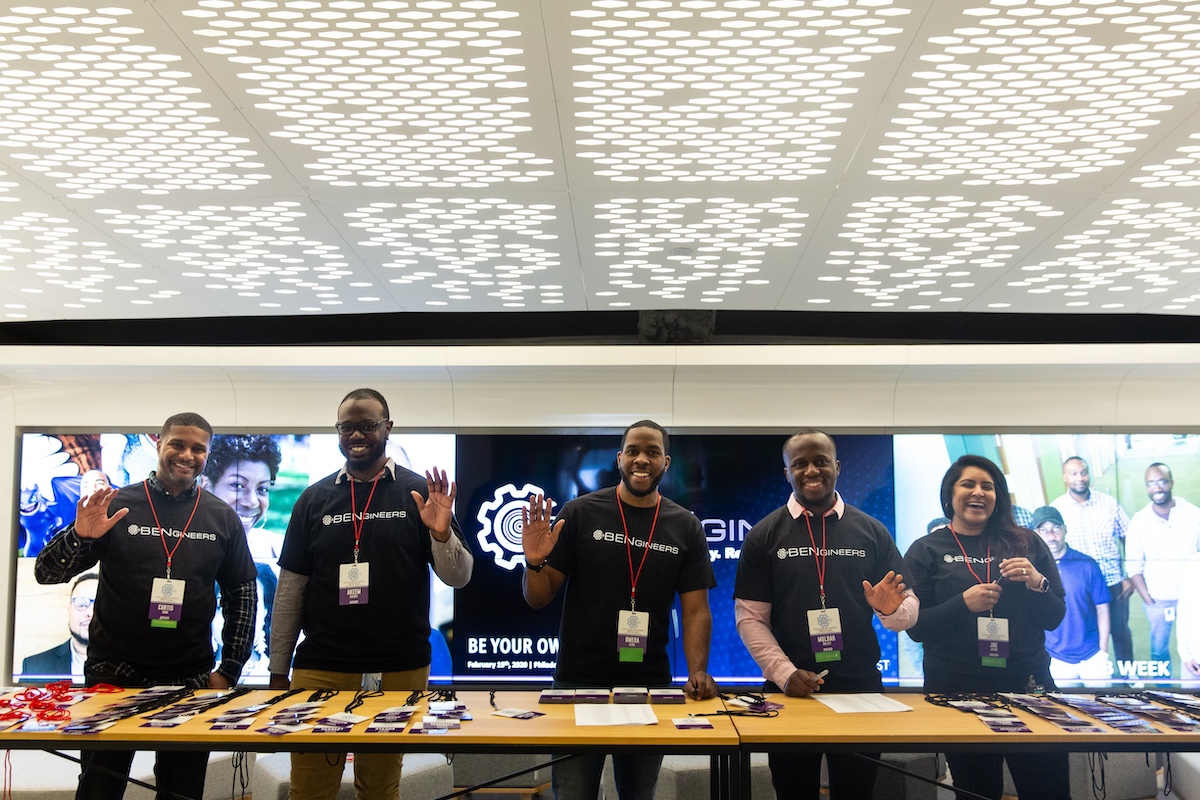Philly’s tech sector continues to show promise. The city has seen a nearly 10% increase in the number of local tech jobs since 2015, ranking the city high among tech talent hotspots. Yet while jobs continue to funnel into the region, increasing diversity among those predominantly white ranks remains a goal — and a struggle — for local companies.
That’s not for lack of trying, in some cases. We’ve seen efforts from city government-led initiatives to the expansion of racial equity-minded coding bootcamps, youth computer science programs and corporate tech skills development. But more than a year after George Floyd’s murder by police and its subsequent public outrage led companies to make public commitments to diversity and more inclusive hiring practices, it’s important to decipher what that could look like in practice.
Technical.ly spoke to leaders and employees from tech organizations around the region and beyond with a goal of determining best practices for companies looking to recruit and ultimately retain Black and brown technologists.
This is the last of a three-part series of case studies on diversifying the tech workforce. Read the first part on boosting the K-12 pipeline, and the second part on upskilling and workforce development. You can also check out Technical.ly’s Tech Diversity Toolkit for more ideas on bringing racial equity to your company or tech ecosystem.
Case study #1: Offer professional development to promising technologists to keep them growing and engaged.
Sulaiman Rahman is the CEO of DiverseForce, a diversity-minded talent firm that also runs the leadership development and nonprofit board placement program DiverseForce On Boards. As a native of Germantown who grew up amidst adverse circumstances, he said, serendipity in meeting certain people allowed him to grow his personal network and eventually attend University of Pennsylvania.
Accordingly, DiverseForce targets professionals from underrepresented communities, many of whom are the first people in their families to hold white-collar jobs.
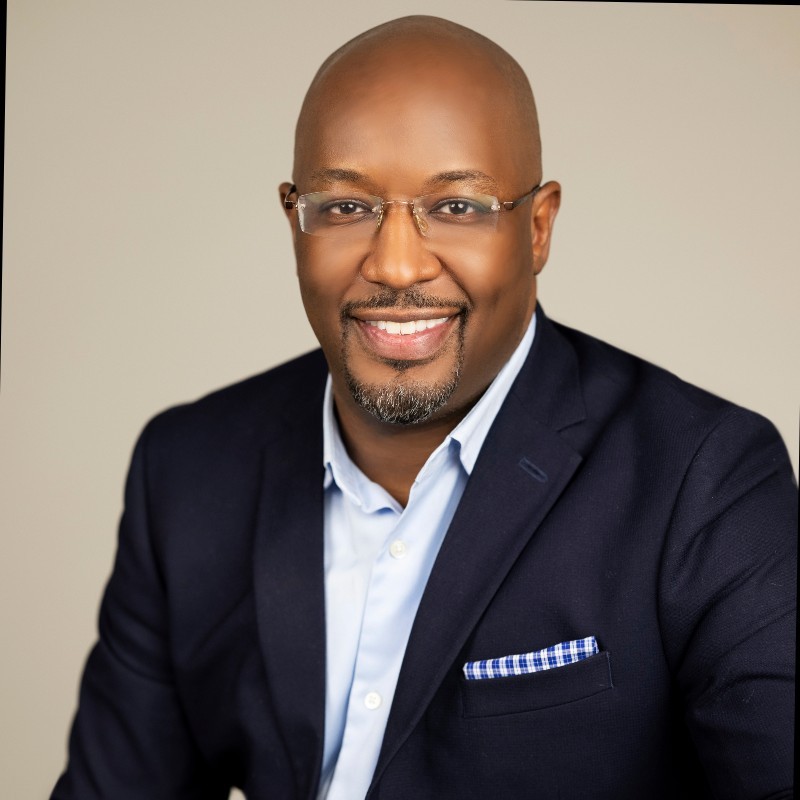
“We really don’t have a systematic way of exposing young people to sectors like tech, so it’s really about normalizing these professions for young people to see it and see possibilities in it,” he said. “Mark Zuckerberg is inspirational for people like him, [but in] Black and brown communities people see themselves in sports and entertainment.”
Rahman believes that by providing professionals from diverse backgrounds with the training and social capital to serve on nonprofit boards, they will receive transferrable skills that can also help them succeed at their places of work. Networking, especially, is important for DiverseForce participants’ growth, he said.
“Many times, people think performing well will help, but you have to build your image and network as well,” he said of career advancement.
Rahman has found that the trajectories of many people of color tapers off in the middle of organizational structures — just point to the scarcity of Black CEOs. By engaging in leadership training, those professionals are able to circumvent imposter syndrome and gain the skills to enter the upper echelon of the companies employing them.
“When you talk to [professionals] in those positions, it’s serendipitous,” he said, calling back to his own experience. “They met someone — but we don’t have a systematic way to ensure Black and brown talent get the exposure, the access, the mentorship and sponsorship. It’s hard to break into those social networks if your family isn’t close to them.”
To further support DiverseForce alumni and members of his networking group Urban Philly Professional Network, Rahman said DiverseForce is opening the P4 (Public Private and Philanthropic Partnership) Hub for Advancing Racial Equity and Excellence. The forthcoming 11,000-square-foot space will offer learning and development for technical leaders via Agile training and education on strategies for leading more diverse tech teams.
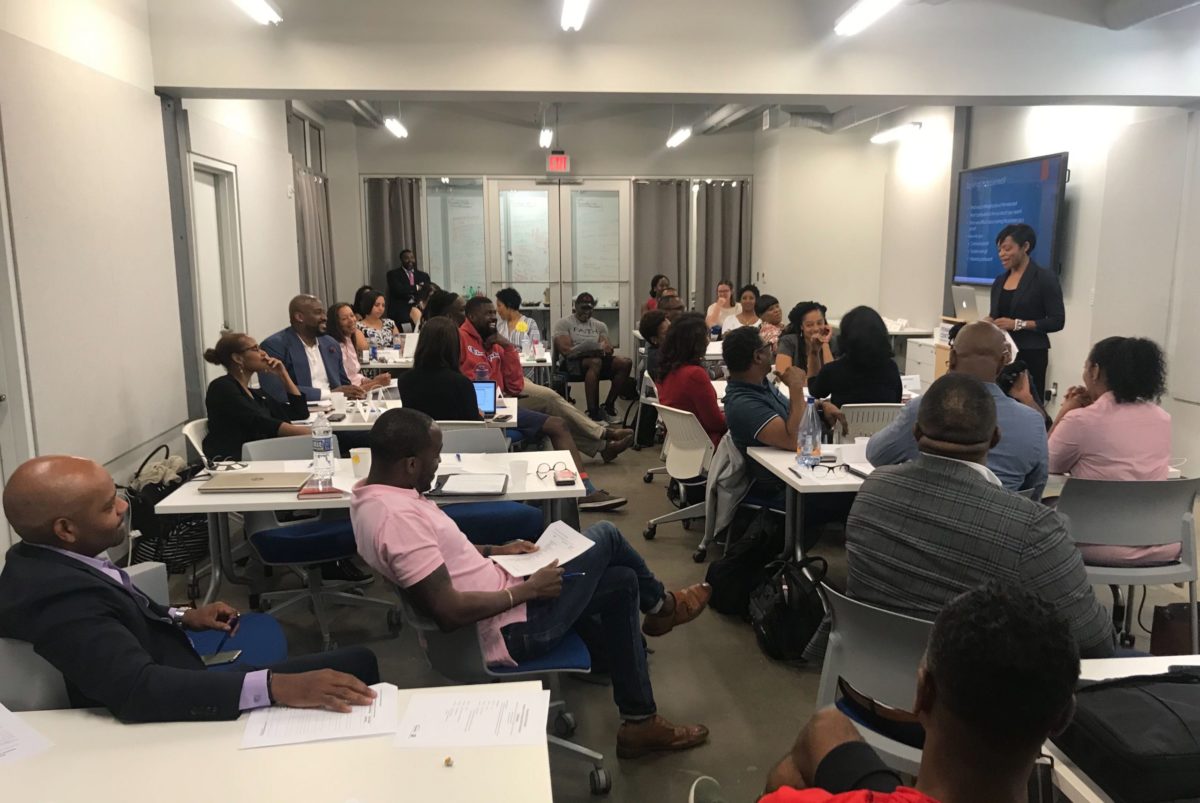
As the interim executive director of the Toronto-headquartered International Game Developers Association Foundation (IGDA), Sarah Spiers believes that the future of gaming looks diverse and inclusive of people from all backgrounds. To prepare for that future, IGDA has launched an HBCU cohort of its Diverse Game Developers: Virtual Exchange program and provided them with mentorship and grants to learn from industry professionals.
“[Our] flagship program is a professional development program for students looking to get into gaming, or mid-career professionals going to leadership roles,” she told Technical.ly. The IGDA also runs the Next Gen Leaders program for mid-career games industry pros, the Velocity program for non-gaming pros who want to pivot into the industry from a different career, and the IGDA Scholars program for college students studying game dev — all for people from underrepresented backgrounds.
https://twitter.com/Ambrowskii/status/1434250323028324353
Spiers got into gaming as a foundation recipient, and said she was also able to take on a great deal of unpaid work as she learned about the industry. Recognizing she had an advantage compared to her peers who couldn’t do that has compelled her to find ways for other aspiring gaming professionals from nontraditional backgrounds to break into the industry.
“Everyone comes from a different background and is starting in different places. Some come from gaming schools and code already, others have work in their free time,” she said. “Other things we’ve learned is that everyone has different understandings of what they want to do in game industries. [When] you give them knowledge and vocabulary to explain what they want, they have agency over their own career paths. It helps them advocate for themselves.”
- Business action item: Organizations can show their commitment to employees from underrepresented backgrounds by offering opportunities for professional development and ways to succeed beyond the workplace. Nominate your standout mid-career employees for programs like IGDA’s Next Gen Leaders or pay for participation in a board prep program like DiverseForce so they can learn the latest best practices in their field, and outside of it. Sponsor a grant program to help Black and brown aspiring technologists get experience in your field.
Case study #2: Support employee resource groups that allow employees of underrepresented backgrounds to build community.
Employee resource groups (ERGs) are becoming a key indicator of diversity at corporate firms. They serve purposes ranging from increasing camaraderie among underrepresented employees, to creating a base from which employee concerns can be shared with leadership, to improving retention. Through ERGs, professionals who otherwise don’t see many others who look like them in the workplace might feel more comfortable to be their full selves at work and are relieved of the pressure to assimilate into an often homogenous corporate culture.
Those in management roles should do what they can to foster ERGs, say some local technologists who lead such groups at their orgs.
Comcast’s BENengineers ERG formed in 2017 as a way for Black technologists at the tech giant to better connect with one another. The group — named for its origin in the tech giant’s Black Employee Network — has allowed Black technologists to advocate for the inclusion of more people like them and diversifying the tech job pipeline in the process.
“I’m a firm believer that talent is equally distributed; opportunity is not,” cofounder and software engineering manager Mumin Ransom told Technical.ly last year. Resources offered by the group include public speaking training and an active Slack group. “We often say, the vision of the BENgineers was to give a voice for the underrepresented.”
Today, BENgineers has grown from seven original members to around 200 members throughout Comcast and hosted large-scale events like the BENgineers Conference, with programming designed specifically for Black engineers, as well as volunteering opportunities.
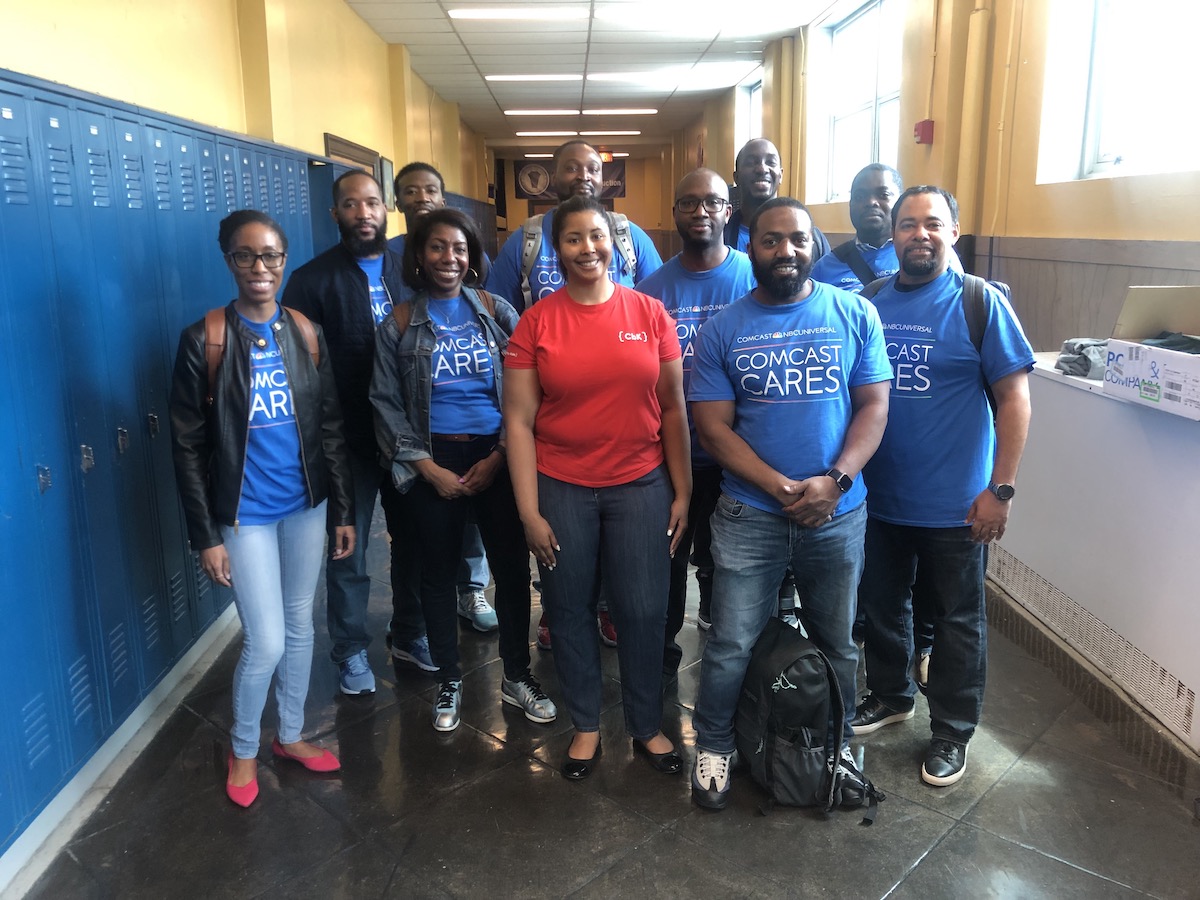
Philly Tech Sistas organizer Ashley Turner has worked to build community among Black women technologists in the Greater Philadelphia area, as an academic technologist at Swarthmore College, she’s also helped organize the Women of Color at Swarthmore ERG. As the pandemic forced individuals to work from home last year, the ERG gave Turner and her colleagues a way to stay connected.
George Floyd’s killing in May 2020 and the social unrest that followed would place even more of a mental burden on Turner and members of the Women of Color ERG. To help each other deal with the emotional trauma of the moment, Turner and her colleagues organized a “sister circle” event as a safe space for women to share their feelings.
“When the George Floyd incident happened, it was especially heartbreaking and a whole host of emotions happened amongst women and people of color in general,” she said at the time. “It was important to come together as a group and hear each other. … We had a safe space to say how we felt about the situation and it was really helpful for everyone to release their thoughts and feelings about it and just be with a group of women sharing that same experience.”
ERGs can also help companies increase their cultural awareness and fluency. Discover Card area manager and ERG advisor Mike Williams found that ERGs can boost inclusivity in product development: The LGBTQ ERG and the Black ERG at Discover Card each helped create credit card lines with Pride and Black History Month artwork.
- Business action item: Employers can support underrepresented employees in creating ERGs as one part of a holistic diversity program. Dedicate space and funding to events the group hosts, and compensate ERG leaders for their time. Most importantly, leadership should be responsive to concerns or suggestions that arise from the ERG.
Case study #3: Foster (and measure) an inclusive culture while building in intentional career advancement.
West Philadelphia native John Foster is the COO of Fearless, a social impact-driven digital services firm based in Baltimore. While many tech companies have made public commitments and devoted resources to improving their diversity practices in the past year, Foster believes that there is still a great deal of work to be done and has been outspoken on the need for better DEI practices at those companies.
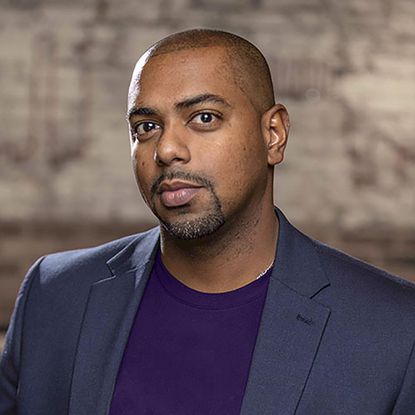
“The problem is we as industry is we haven’t fundamentally come to the understanding [that] in order for systems to change, people who have the power have to understand the problems that are operating if they want to fix it,” he said.
Systemic issues like inequity in the workplace are bigger than just individual-level responses — but they also require individual actions. One first step: Company leaders must asses unconscious bias in their own employment practices. If you want to retain people of color, LGBTQ people and other underrepresented technologists, you must set specific, actionable, measurable goals for employee advancement.
“If you don’t do that, nothing else will work,” he said. “Even if you want to have that conversation, you have to have a plan. If you talk about retaining talent, you have to have a plan. Put it on paper and set objectives on what that looks like.”
Over the last few years, Fearless has done this by rolling out the position of passion coaches. These are leaders within the organization who work with teams in a certain area of expertise. It’s a role that has technical aspects, but it’s also tied to the people on the team.
During the pandemic and protests in 2020, that work evolved naturally to even more of a people-centered role in which passion coaches checked in and messaged out. Alongside the work of how to do the job, they became conduits for the company’s culture. Passion coaches are now the “champions” inside the organization of creating safe spaces for conversation, and keeping open dialogue, as Stephanie Baggage, senior manager for people development, told Technical.ly earlier this year.
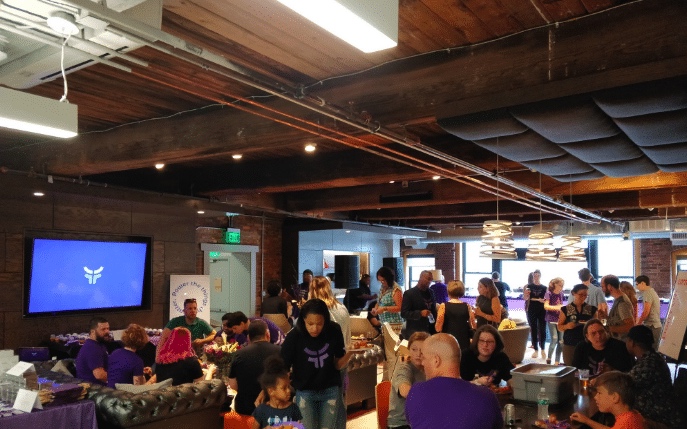
And Philadelphia-based software engineer and startup founder Cody Eddings noted that technologists might feel isolated if they’re one of the only a few BIPOC people in an organization. He said he’s felt uplifted by the unique solidarity felt from working in an environment with other Black professionals.
“With an inclusive culture comes not only the simple pleasures of being around other people whom you can learn from and relate to culturally,” he said, “but also a greater sense of purpose in knowing that the company you’re trading your life to by the hour is actually spreading wealth in a greater, more representative community at large rather than the historically small group of people it typically trickles down to.”
- Business action item: By intentionally planning diversity, equity and inclusion practices and measuring those efforts, companies can create inclusive environments in which people of all backgrounds can join, ascend and ultimately thrive.

